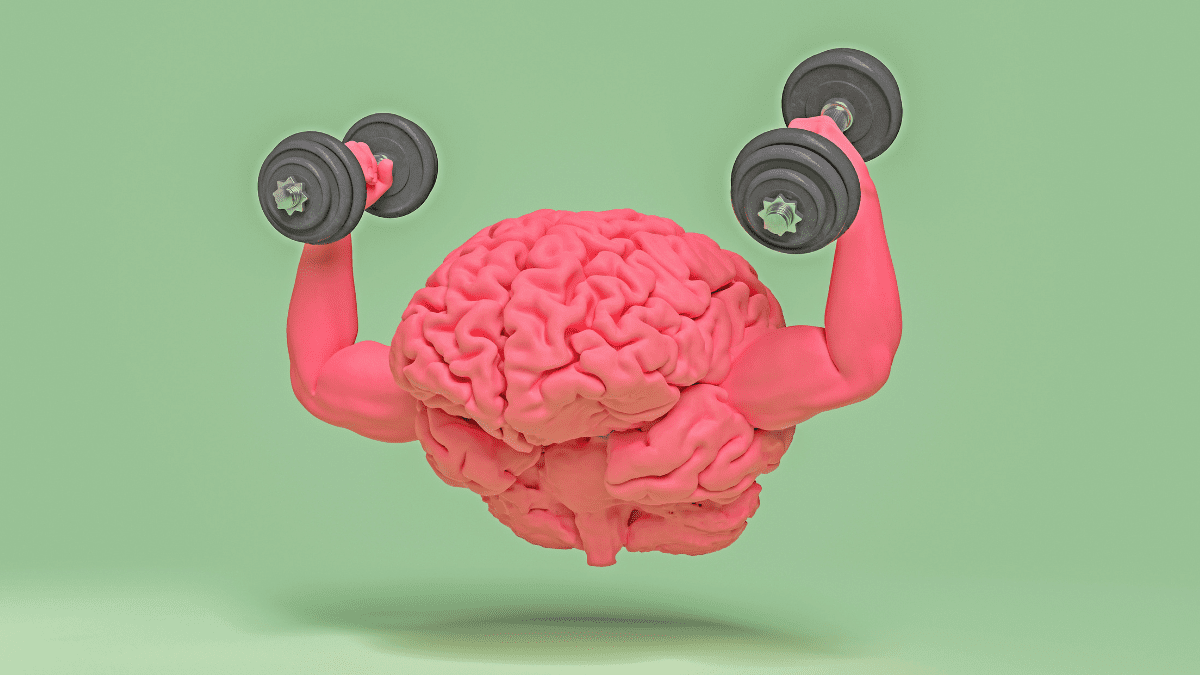Gut Health Facts: The Hidden Key to Energy & Vitality!
Gut health facts prove your energy, mood, and metabolism depend on your gut! If you're constantly tired, bloated, or unfocused, your microbiome may be the missing key to vitality!

Gut Health Facts: Why Your Digestion Controls Everything
Many people ignore their gut health. But gut health facts prove it affects more than digestion. Your gut controls energy, metabolism, immunity, and even mood. If you feel tired, bloated, or unfocused, your gut may be struggling.
A balanced gut microbiome absorbs nutrients better and supports metabolism. On the other hand, an unhealthy gut leads to fatigue, weight gain, and inflammation. The foods you eat play a huge role. Some diets nourish your gut, while others harm it. If you’re unsure which is best, check out this guide comparing plant-based and keto diets.
A healthy gut means better energy, stronger immunity, and sharper focus. Let’s explore the most important gut health facts and how they impact your well-being.
Digestive Health: What Your Gut Is Telling You
Your gut is always sending signals about your health. Some are obvious, while others are easy to ignore. Gut health facts show that digestion affects energy, mood, and overall wellness. When something is off, the body gives clear warnings. Understanding these signs can help improve gut health before bigger issues arise.
Gut health facts about bloating, gas, and discomfort
Occasional bloating happens to everyone. However, frequent bloating and gas may signal an imbalance in gut bacteria. When harmful bacteria outnumber beneficial ones, digestion slows. This leads to discomfort, trapped gas, and inflammation.
Food intolerances also trigger bloating. Some people struggle to digest dairy, gluten, or artificial sweeteners. These ingredients can cause fermentation in the gut, leading to gas and pain. Keeping a food journal helps identify which foods trigger symptoms.
Probiotics and fiber-rich foods can improve digestion. They support gut bacteria and help food break down more efficiently. Studies show that probiotics reduce bloating and support digestive balance. To learn more, check out this research on probiotics and digestion.
How gut health affects nutrient absorption
The gut is responsible for breaking down food and absorbing nutrients. When digestion is weak, the body struggles to get essential vitamins and minerals. Low energy, brittle nails, and hair loss may indicate poor nutrient absorption.
Leaky gut syndrome can make this worse. When the gut lining becomes damaged, toxins and undigested food particles leak into the bloodstream. This triggers inflammation, food sensitivities, and fatigue. Strengthening the gut lining with collagen, bone broth, and omega-3s can help.
Eating a variety of whole foods supports absorption. Leafy greens, nuts, and lean proteins provide essential nutrients. Hydration is also key. Water helps transport nutrients and keeps digestion moving.
Signs of an unhealthy gut and what to do
Frequent heartburn, constipation, or diarrhea signal an imbalanced gut. These issues may result from poor diet, stress, or medication use. Ignoring them can lead to chronic conditions like irritable bowel syndrome.
Managing stress improves digestion. High stress increases stomach acid, leading to reflux and discomfort. Relaxation techniques like deep breathing and yoga can help. Sleep also plays a role. Poor sleep disrupts gut bacteria and slows digestion.
Gut health facts prove that digestion impacts more than just the stomach. Listening to the body’s signals can prevent bigger health problems. Small changes in diet and lifestyle create long-term benefits. Next, let’s explore how gut health strengthens the immune system and protects against disease.
Immunity & Gut Health: The First Line of Defense
A strong immune system starts in the gut. Many people don’t realize that gut health facts prove most immune cells live in the digestive tract. When the gut is healthy, the body fights off infections more effectively. However, when gut bacteria are out of balance, immunity weakens. This makes people more prone to illness, allergies, and inflammation.
Gut health facts about immunity and inflammation
The gut and immune system are closely connected. Around 70% of immune cells are found in the intestinal lining. These cells defend against harmful bacteria, viruses, and toxins. A balanced gut microbiome helps regulate immune responses, preventing the body from overreacting or underperforming.
Chronic inflammation weakens the immune system. An unhealthy gut can trigger long-term inflammation, leading to autoimmune diseases and digestive disorders. Certain foods, like processed sugars and artificial additives, increase gut inflammation. Avoiding these foods can help protect immunity.
How gut bacteria influence immune responses
Good bacteria in the gut train the immune system to recognize threats. When gut bacteria are diverse, immunity becomes stronger. However, when harmful bacteria take over, the body struggles to fight infections. This imbalance, known as dysbiosis, leads to frequent colds, digestive problems, and slow healing.
Probiotics help restore balance. Research shows that probiotic-rich foods improve gut microbiome diversity and boost immune function. To learn more, check out this guide on probiotics and immunity.
Prebiotics also play a role. These are fibers that feed good bacteria, helping them grow. Foods like bananas, garlic, and onions naturally support gut bacteria. When combined with probiotics, they create a stronger defense system.

Ways to strengthen gut health for better immunity
Diet is the foundation of gut health. Eating whole foods, lean proteins, and healthy fats supports the microbiome. Processed foods and excessive alcohol weaken gut bacteria, making the body more vulnerable.
Hydration is also key. Water helps flush out toxins and keeps digestion running smoothly. Dehydration slows immune responses and increases the risk of infections.
Stress management is equally important. High stress raises cortisol levels, which disrupt gut bacteria and weaken immunity. Deep breathing, exercise, and meditation reduce stress and protect gut health.
Gut health facts show that a strong digestive system means a strong immune system. Simple changes like eating probiotic foods, staying hydrated, and reducing stress can make a big difference. Next, let’s explore how gut health affects energy levels and metabolism.
The Impact of Gut Health on Energy & Metabolism
Many people feel tired without knowing why. Gut health facts reveal that digestion plays a key role in energy and metabolism. When the gut is strong, nutrients are absorbed properly. This fuels the body and keeps energy levels stable. However, when the gut is imbalanced, fatigue sets in.
Gut health facts about fatigue and metabolism
The gut breaks down food into usable energy. It extracts vitamins, minerals, and macronutrients. If digestion is weak, nutrient absorption drops. As a result, the body lacks the fuel it needs. This leads to sluggishness, brain fog, and low endurance.
An unhealthy gut can also slow metabolism. Some gut bacteria help burn calories. Others store fat. When harmful bacteria take over, metabolism slows. This makes it harder to lose weight and easier to gain it.
Chronic inflammation is another problem. It puts stress on the body, draining energy. Processed foods and artificial additives trigger gut inflammation. Over time, this leads to constant exhaustion.
How gut bacteria influence energy levels
Good gut bacteria break down fiber into short-chain fatty acids. These acids provide a steady energy source. They also help regulate blood sugar. This prevents energy crashes after meals.
Poor gut health can cause insulin resistance. When cells stop responding to insulin, sugar stays in the blood. This leads to fatigue and weight gain. Studies show that gut bacteria influence blood sugar control and energy production. To learn more, check out this research on gut bacteria and metabolism.
The gut also produces B vitamins. These vitamins help convert food into energy. When gut bacteria are imbalanced, B vitamin production drops. This makes people feel tired even with enough sleep.
Ways to improve gut health for better energy
A healthy gut starts with a balanced diet. Whole foods, lean proteins, and healthy fats support digestion. Fiber is especially important. It feeds good gut bacteria, keeping them strong.
Probiotic foods like yogurt, kefir, and kimchi add beneficial bacteria. Prebiotics, found in garlic, bananas, and onions, help these bacteria grow. Eating both improves gut function.
Hydration is also key. Water helps move nutrients through the digestive system. It also flushes out waste. Without enough water, digestion slows, and energy drops.
Managing stress is another factor. High stress increases gut inflammation. It also disrupts gut bacteria, making fatigue worse. Meditation, exercise, and deep breathing lower stress and support gut health.
Gut health facts prove that digestion affects both energy and metabolism. Making small changes to diet and lifestyle can boost energy naturally. Next, let’s explore the best foods and habits for maintaining a healthy gut.
Best Foods & Habits for a Healthier Gut
A healthy gut starts with the right foods. What you eat directly affects digestion, energy, and immunity. Gut health facts prove that good bacteria thrive on certain foods. Others, however, cause inflammation and imbalance. Choosing wisely makes all the difference.
Gut health facts about the best foods for digestion
Fiber is essential. It feeds beneficial gut bacteria and keeps digestion smooth. Whole grains, vegetables, and fruits are rich in fiber. Eating a variety of these helps maintain a balanced microbiome.
Probiotics introduce good bacteria into the gut. Yogurt, kimchi, and sauerkraut are excellent sources. Kefir and miso also support a diverse gut environment. These foods improve digestion and strengthen immunity.
Prebiotics feed the good bacteria already in your gut. Foods like garlic, onions, and bananas are great options. They help bacteria multiply, ensuring a strong microbiome.
Fermented foods are powerful. They contain live cultures that restore gut balance. Including them in your diet boosts gut function and reduces bloating.

Foods to avoid for better gut health
Certain foods weaken digestion. Processed foods, artificial sweeteners, and excess sugar harm gut bacteria. They increase inflammation and cause imbalances. Cutting back improves overall gut function.
Too much alcohol disrupts gut bacteria. It weakens the gut lining, leading to poor digestion. Limiting alcohol helps restore balance.
Fried and greasy foods slow digestion. They make the gut work harder, leading to discomfort. Choosing healthier fats, like olive oil and avocado, supports gut health.
Dairy can be a problem for some. Lactose intolerance affects digestion, causing bloating and discomfort. Switching to lactose-free or plant-based alternatives may help.
Daily habits that improve gut health
Hydration is key. Water helps break down food and move waste efficiently. Drinking enough water supports digestion and prevents constipation.
Stress management is also important. High stress increases gut inflammation. Simple habits like deep breathing, meditation, and walking lower stress and protect gut bacteria.
Getting enough sleep helps too. Poor sleep disrupts gut bacteria and slows digestion. A regular sleep schedule improves both gut health and energy.
Exercise plays a role. Moving your body keeps digestion active. Even light activities like stretching or walking help keep the gut working properly.
Science confirms that lifestyle choices influence gut health and overall wellness. To explore more, check out this guide on how diet affects the microbiome.
Gut health facts show that simple diet and lifestyle changes make a big difference. Now, let’s explore how everything connects and why gut health is the key to long-term vitality.
Conclusion: Take Control of Your Gut, Take Control of Your Life
Gut health affects everything. Energy, digestion, immunity, and mood all depend on a balanced microbiome. When the gut thrives, the body functions at its best. But when it struggles, problems arise.
Small changes make a big impact. Eating fiber-rich foods feeds good bacteria. Adding probiotics restores balance. Staying hydrated keeps digestion smooth. Every healthy habit strengthens the gut.
Stress weakens gut health. Deep breathing, mindfulness, and exercise help reduce its effects. Quality sleep also plays a role. A well-rested body supports better digestion and overall wellness.
Listening to your body is key. Bloating, fatigue, or frequent illness may signal gut issues. Paying attention to these signs allows you to take action early.
Now is the time to prioritize gut health. Simple adjustments can transform how you feel every day. Are you ready to take control and unlock lasting energy and vitality?







